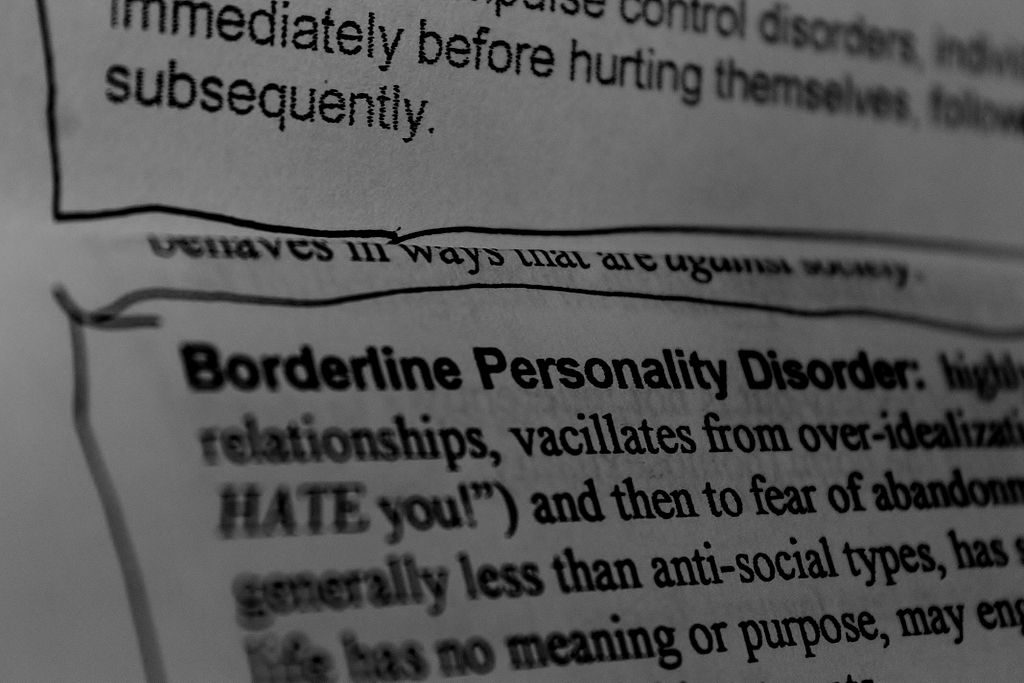Borderline personality disorder (BPD) is a mental health condition that causes people to have difficulty maintaining stable relationships, lack self-control, and feel paranoia.
Initially developed as a treatment mechanism for borderline personality disorder, dialectical behavior therapy (DBT) now expands its reach far beyond that scope. Similar to cognitive behavioral therapy, DBT is increasingly considered effective in managing varied forms of psychological stress associated with problematic personal relationships.
Dialectical behavioral therapy trains individuals to discern an optimum balance between acceptance and change – two vital dynamics commonly and personally at play in human interactions. What immediately sets DBT apart is how it holistically tackles the issue at hand – by developing different skill sets related to mindfulness, distress tolerance, emotional regulation, and lastly – most relevant in the context of relationship problems – interpersonal effectiveness.
Thus, people learn methods to handle their emotions better and react more positively during instances of conflict or disagreement. They build strategies that help them navigate through differences more successfully; such improvements eventually lead them toward healthier communication patterns altogether.

Dialectical Behavior Therapy
No one knows what causes it, but it is rooted in genetic, biological, environmental, and social factors. Here’s how dialectical behavior therapy (DBT) can help in treating borderline personality disorder, by integrating opposites. This means that dialectic behavior therapy therapists can accept patients while acknowledging that they need to change to reach their goals.
Dialectical Behavior Therapy Nature
Dialectic behavior therapy is given to those with borderline personality disorder. This dialectical behavior therapy operates within a framework of a dialectical model and interpersonal effectiveness that balances opposites such as acceptance and change. DBT therapy primarily focuses on acceptance-based strategies and problem-solving for the immediate crisis. Often, patients with BPD are described as “difficult to treat.”
Stacey Freedenthal, PhD, LCSW said, “A diagnosis of “borderline personality disorder” carries a profound stigma for many people. Even some mental health professionals use such term pejoratively, which is not difficult considering that a detection itself implies that someone’s personality is flawed.”
Dialectical Behavior Therapy Process

Dialectical behavior therapy DBT was initially intended for those with suicidal behavior and extreme emotional issues. Because of this, dialectic behavior therapy happens in stages.
Dialectical Behavior Therapy Stages
Dialectical Behavior Therapy Stage 1 – Helps With Gaining Self-Control
The first stage of dialectical behavior therapy DBT focuses on achieving some self-control over intense negative emotions such as anger. John M. Grohol, Psy.D. says, “An angry person is also a person who is less able to hear and react to others in an empathetic, helpful way. Instead, when we’re angry, we tend to shut down, put our defenses up, and answer back in a way that can be hurtful or uncaring.” People in the first stage must learn not to react impulsively or do things that can harm themselves or others. Thus, this dialectical behavior therapy stage begins with crisis intervention and safety.
Dialectical Behavior Therapy Stage 2: Addressing Different Unregulated Emotions
The second stage aims to recognize, label, and adjust one’s emotions (emotional regulation skills). This DBT stage is essential for those with borderline personality disorder not to bury or hide their emotional pain; instead, surface and explore them safely.
DBT Stage 3: Improving Relationships And Self-Esteem
During this stage, DBT teaches patients to become more fully aware of themselves and the people around them and be attentive to the present moment. That’s how suitable DBT is. They must enhance their quality of day-to-day life by being happy and stable. Building one’s self-esteem requires help from others as they can vouch for and contribute to this process. Self-talk in increasing confidence, however, will not work as much since a person with borderline personality disorder would rely on much and believe others’ perceptions more than their own.
DBT Stage 4: Promote Joy And Connection
In the final stage, patients must learn how to interact with others assertively and can navigate conflicts. This DBT skills training stage aims to improve patients’ lives by maintaining their happiness and success.
Clinical Psychologist and relationship expert Molly Gasbarrini, Ph.D., explains, “We should examine the inextricable role that self-love plays in all human connections.”
What To Expect

Dialectical behavior therapy treatment consists of group therapy and individual psychotherapy sessions. For the individual DBT therapy sessions, the patients meet a DBT therapist one-on-one. This is to ensure all needs are being addressed with positive changes. Through this, the patients stay motivated as they apply skills to daily life goals and solve problems that may surface throughout dialectic behavior therapy.
Behavioral Dialectical Therapy
On the other hand, this group skills training provides opportunities to learn and practice healthy coping skills alongside other people with borderline personality disorders. Each of them is encouraged to share life experiences with the group setting and is expected to provide mutual support to each other.
DBT training will be led by their DBT techniques expert and licensed mental health professional, who will oversee leading exercises and teaching new skill sets such as distress tolerance skills, behavioral skills, and coping skills to name a few. Homework assignments, such as practicing mindfulness skills, are given to all group members. During dialectic behavior therapy, they will meet for six months of weekly sessions and for approximately two hours in group sessions.
DBT develops four major skills: interpersonal effectiveness, distress tolerance, emotion regulation, and mindfulness. Developing and understanding these new skills can benefit anyone who has problems coping in healthy ways with life in general.
4 Components Of Comprehensive DBT:
Group Skills Training
The session for skills enhancement is divided into four sectors: Consciousness Praxis, Tolerance to Stress, Management of Emotion, and Interpersonal Efficiency. For adolescent participants, there’s an added module named “Navigating the Median Course.” This particular group activity emphasizes upgrading the capabilities of patients by imparting to them enhanced adaptive skills. The session resembles a class-like setup where the lead works on teaching these skills and sets homework that encourages participants to apply these learned skill sets organically in their everyday lives.
Individual Right Therapy
Personal therapy sessions play a significant role in enhancing their willingness to employ newly acquired skills in their regular lives while also addressing specific events or challenges they may be struggling with. Unhealthy behavioral patterns that have been negatively affecting their lives are identified and broken down systematically through diary card records and behavioral chain analyses aiming for healthier responses.
Phone Coaching
When it comes to telephone coaching as part of DBT all work towards providing real-time dialectic behavior therapy geared towards guiding patients while navigating challenging situations that emerge on daily bases encouraging them to maximally utilize newly learned coping mechanisms when required urgently.
DBT Consultation Team
Lastly, the dialectic behavior therapy team responsible for the upkeep comprises individual practitioners as well as group leads who jointly care about each other’s therapeutic well-being since they handle intricate circumstances with complex issues requiring patience and endurance facilitated, ensuring everyone stays motivated and competent throughout hence delivering maximum possible care.
Take Away
According to research, DBT for BPD patients is an effective treatment in reducing intentional self-harm, self-destructive behaviors, self-injury, generalized anxiety disorder, post-traumatic stress disorder, eating disorder, binge eating disorders like bulimia nervosa, suicidal behaviors, substance abuse, and other mental health conditions. Contact telephone crisis coaching for immediate help or consult a healthcare provider.
FAQs
What is the meaning of dialectical behavior therapy (DBT)?
What are the four stages of dialectical behavior therapy?
What is the main goal of dialectical behavior therapy?
What are the pros and cons of dialectical behavior therapy?
When is dialectical behavior therapy not appropriate?
Who would not benefit from dialectical behavior therapy?
What are the disadvantages of dialectical behavior therapy?
What does a dialectical behavior therapy session look like?
Can I do dialectical behavior therapy on my own?
How long does dialectical behavior therapy take to work?
What are the six main points of dialectical behavior therapy?
What does a DBT session look like?
What is difference between CBT and DBT?